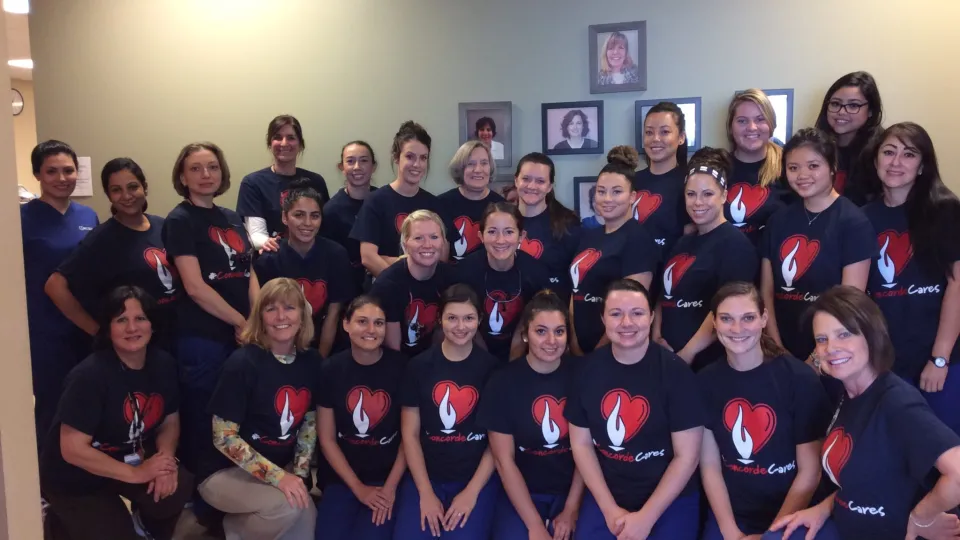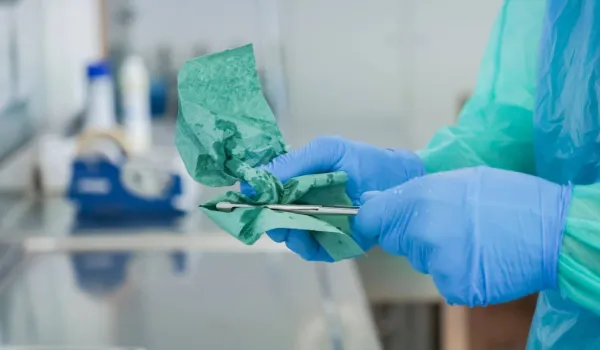
Bad breath. No one wants to admit they have it. No one wants to tell you about it. Even professionals in Dental Hygiene shy away from mentioning it. The fact that there is a billion-dollar oral health care product industry in the U.S. dedicated to combating the problem identifies the size of the problem.
But we want our Concorde students and graduates all to enjoy the benefits of clean, fresh breath. And there are some simple things to know and do that are effective in fighting bad breath and maintaining good Dental Hygiene and good breath.
We enlisted the help of a couple of our Dental Hygiene Program Directors to explain why most of us suffer from halitosis and what we can do to keep our breath fresh.
Causes of Halitosis
There are a variety of things that cause bad breath, according to Laurel Sampson, Dental Hygiene Program Director at Concorde's campus in San Diego. These include systemic factors such as disease processes or the ingestion of odiferous foods. However, these account for only 10 percent of oral malodor, Sampson said. The other 90 percent originates in the oral cavity.
"Bad breath is most commonly due to the anaerobic bacteria that inhabit our gum tissue, tonsils and most important, our tongues," Sampson said. "In fact, our tongues are the ideal environment for entrapping all kinds of debris that these nasty bugs like to call dinner. When they digest them, the bacteria produce stinky stuff called 'volatile sulfur compounds,' or VSCs. Voila, bad breath is born!"
So, what can we do about this problem? Sampson said many people attempt to deal with bad breath by brushing their teeth or using mouthwash. But that only takes care of part of the problem. The biggest culprit, the tongue, goes unnoticed in cleaning efforts.
"Some people do try and address this by brushing their tongues," she said, "but with the addition of one simple device to our daily oral care routine, we can be truly effective in chasing the stink bugs away. That device is called a tongue scraper, and a recent study showed that using one can decrease the VSCs by 75 percent."
"So, if you really want to have sweet breath, go to your local pharmacy and pick one up and use it every day. You'll be amazed at the results!"
The direct causes of halitosis vary from person to person. Some people have an increased risk for developing bad breath, reports the Mayo Clinic, from the following factors:
- Food - Bad breath may be caused by food particles around and between your teeth. These food particles may accumulate on your tongue as well. Furthermore, some foods release odors after being ingested, such as garlic, onions, and spices.
- Tobacco - Smoking or chewing tobacco causes foul odors in the mouth. However, using tobacco may lead to gum disease and other dental problems, which will cause bad breath.
- Poor dental hygiene - Not brushing and flossing daily allows bacteria to grow and produce the odors of bad breath. If you have dentures, they harbor the same bacteria.
- Dry mouth - Although dry mouth occurs naturally during sleep, dry mouth contributes to the growth of bacteria and the release of the odors. Some medications may cause dry mouth, and therefore, contribute to bad breath.
- Infections - Dental infections from pulled teeth, dental injury, or dental surgery may cause bad breath.
Fighting Halitosis
The first thing to do in the fight against halitosis is to recognize you have a problem.
- Perform dental hygiene at home - Brush and floss daily, even if you do not notice any symptoms of bad breath. Brushing and flossing help to lower your risk of developing dental problems, gum disease, and other medical issues.
- Use medicated mouthwash - You may want to consider adding a mouthwash with cetylpyridinium chloride or chlorhexidine to help kill bacterial growth, explains the Mayo Clinic. However, some of the mouthwashes may require a prescription from a dental hygienist.
- Avoid foods known to cause bad breath - If certain foods, such as those mentioned above, give you bad breath, avoid them. Also, you should limit your intake of highly acidic foods. This will help reduce tooth decay and the exacerbation of bad breath.
- Address sleeping with your mouth open - If you sleep with your mouth open, consult with your dental hygienist about ways to deal with the problem. You may try sleeping in a different position, entering a sleep study, or using over-the-counter remedies for helping you breathe at night.
Nine Causes/Cures for Treating Halitosis
Sabrina Santucho, Dental Hygiene Program Director for Concorde's campus in San Bernardino, listed nine causes/cures for bad breath.
- Bacteria lurking between teeth and covering tongue. Brush twice a day and floss once a day. Use a tongue scraper. Floss before bed to prevent morning breath.
- Tonsil stones collect bacteria. Use a water flosser to flush out debris. Gargle with warm salt water to clear the bacteria. See your physician if you have tonsillitis.
- Acid reflux or ulcer. Use acid blockers.
- Onions and garlic. Brush, floss and rinse. Limit amount of garlic and onion intake.
- Sinus infection. Treat congestion and see your physician.
- Dry mouth. Drink water and stay hydrated.
- Tobacco, cigars. Stop using tobacco products.
- Chronic bronchitis, diabetes, kidney or liver disease. See your physician.
- Have your teeth cleaned every six months.
If you are unsure about the causes of your bad breath, your dental hygienist is a good place to start for answers.
Learn more about how you can keep your patients happy and healthy by becoming a dental hygienist. Contact Concorde Career College today.
Take The Next Step Towards a Brighter Future
We have a Concorde representative ready to talk about what matters most to you. Get answers about start dates, curriculum, financial aid, scholarships and more!




